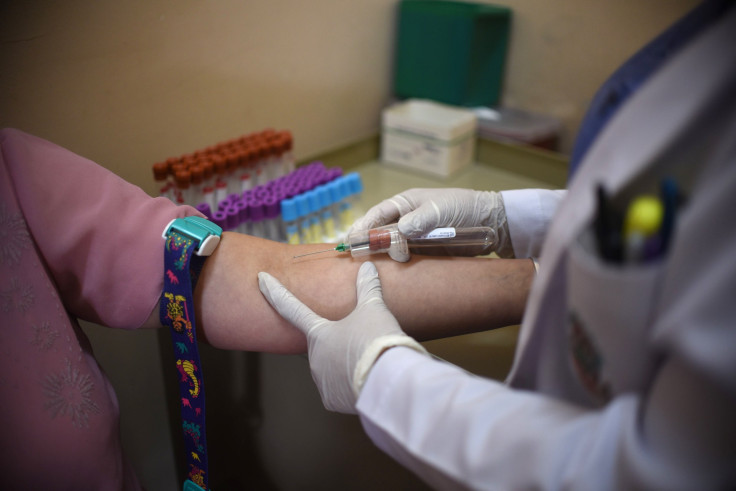Cancer Detection: New Blood Test, CancerSeek, Can Spot 8 Varieties

In a major breakthrough, scientists have devised a blood test that can detect eight of the most common types of cancer.
A team of scientists at John Hopkins University, who published the study in journal Science on Thursday, said the test could be available to patients in the next few years.
The test called CancerSEEK looks for the presence of eight different types of cancer, including lung, breast and colorectal cancers, which are usually diagnosed when it is too late to fight them and are together responsible for more than 60 percent of cancer deaths in the United States.
"For the first time we're seeing potential for a blood test that can screen for many types of nasty cancers that until now we've had to wait until symptoms are diagnosed quite late," said professor Peter Gibbs from the Walter and Eliza Hall Institute, who was one of the researchers involved in the study, abc.net reported.
CancerSeek looks for traces of mutated DNA and proteins released by tumors in the bloodstream — specifically mutations in 16 genes and eight proteins.
Working with blood samples of 1,005 people with one of the eight different cancer types, researchers used CancerSEEK to reliably identify the tumors in 70 percent cases.
The success rates ranged from an impressive 98 percent in case of ovarian tumors to only 33 percent in people with breast tumors.
"This field of early detection is critical, and the results are very exciting," Dr Cristian Tomasetti from Johns Hopkins University School of Medicine told the BBC. "I think this can have an enormous impact on cancer mortality."
Apart from the ease of a blood test, another factor going for CancerSeek is the cost of the testing. The proposed price tag of $500 for the test is less than for those of other screening methods.
Professor Gibbs said with the progress of the technology and with more people partaking of the test, they expected the cost to come down over time.
"So hopefully, eventually this will be a few hundred dollars, which puts it in the ballpark of many other tests that we routinely do," he said.
Joshua Cohen, the lead author of the study, said, "Our ultimate vision is that a person goes to their primary care provider for a routine checkup and at the same time as testing their cholesterol, they have a screening to test for different types of cancer,” Forbes reported.
However, the researchers stressed the need for a larger-scale trial before making CancerSEEK available commercially.
With this in mind, they are embarking on a new study featuring 10,000 healthy individuals, hoping it will allow them to further ascertain if the test can accurately predict who ultimately develops cancer.
“The prospective study will answer the question, can this test detect cancer earlier than conventional methods, and at the same time as this, we will be working on improving and refining CancerSEEK," said Cohen.
© Copyright IBTimes 2025. All rights reserved.



















